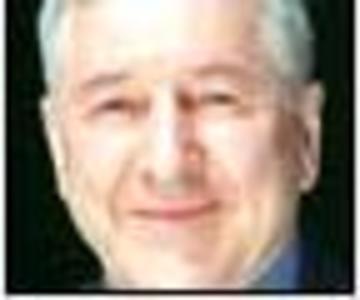How Canada has changed in just three years. Can this federal election spring as many surprises, trigger as many reversals of fortune, as did the last? Will our country be unbelievably different?
In the fall of 2005, as we awaited the election call that would come on Nov. 29, there was deep foreboding in the land over the threat that Quebec was on its way to seceding. Federalism had then been discredited week after week, month after month, by Mr. Justice John Gomery's hearings on the sponsorship scandal. In Quebec, Premier Jean Charest set records for the unpopularity of his government. The Parti Québécois was so confident of taking power and acceding to sovereignty that, at its convention that June, it scrapped any commitment to a partnership or association with Canada. Instead, it promised an early referendum on sovereignty alone, with all negotiations to come only after a unilateral declaration of independence, between two sovereign countries.
Four days before the election call, pollster Michael Adams wrote a piece in this newspaper under the headline: "Look out! Quebec's winning conditions have arrived." He pointed to the growing support for independence and to the just-elected PQ leader, "a young, handsome, gay, and postcocaine André Boisclair." The pollster warned: "A Conservative government in Ottawa, indeed any government in Ottawa, with no seats in Quebec would be unprecedented in Canadian history. This would be a surefire formula for constitutional disaster."
The smart money knew that Stephen Harper could never become prime minister. That October, a Strategic Counsel poll showed that 58 per cent of Canadians viewed him unfavourably. Pollster Allan Gregg said: "[Voters] just can't get a feel for him at a personal level. It's very tough. It's going to be very, very tough." Three days before the election call, the Toronto Star bannered an Ekos poll: "The Liberals are heading into the election campaign with a majority victory in sight and a lead of almost 10 percentage points over the second-place Conservatives."
So what happened? Mr. Harper became Prime Minister with 124 seats, to 103 for the Liberals, 51 for the Bloc Québécois and 29 for the NDP. It was assumed he would win no seats in Quebec, as in 2004. Instead, he took 10 seats, and 25 per cent of the vote. After his election, he worked hard to win over Quebec, beginning his speeches in French, giving a voice for Quebec in the Canadian delegation to UNESCO, delivering bundles of money under the guise of settling the "fiscal imbalance," and recognizing "the Québécois" as a nation within a united Canada.
The success of his wooing was written in the most credible poll to date, published in La Presse on Aug. 27. It was done by CROP, Quebec's most reputed firm, with a sample of 1,003 people, all in Quebec. It showed the Conservative Party in a dead heat with the Bloc, with 31 per cent and 30 per cent respectively. The Liberals of Stéphane Dion trailed at 20 per cent, the NDP was at 14 per cent and the Green Party at 4 per cent. Asked who would make the best prime minister, 35 per cent chose Mr. Harper, 24 per cent Jack Layton, and only 15 per cent Mr. Dion. Support for sovereignty was at 36 per cent, with 64 per cent opposed.
The poll had the Conservatives leading the Liberals everywhere except on the island of Montreal. They equalled or bettered the Bloc everywhere except Metropolitan Montreal.
The poll showed the Liberals of Mr. Harper's resurgent ally, Mr. Charest, leading the PQ 42 per cent to 32 per cent, with the Action Démocratique du Québec trailing at 17 per cent.
The national unity scene at this time is calm. The PQ, in third place in the National Assembly, has put off any referendum on secession. The Bloc, which three years ago had been expected to sweep Quebec, received in those elections 42 per cent of the vote and has now fallen 12 points below that.
Eloquent was the Strategic Counsel poll published Sept. 2: the issues that now concern voters are the economy, the environment, health care, war and security. The issue of national unity, so dominant in 2005, does not get even a mention.
Can this election return a Copernican revolution on the same scale? This time, Stéphane Dion has replaced Stephen Harper as the leader least likely to succeed.
***
William Johnson is an author and a former president of Alliance Quebec.
National unity, then and now
In fall of 2005, as we awaited the election call, there was deep foreboding over the threat of Quebec's seceding
Élections fédérales du 14 octobre 2008

William Johnson53 articles
William Johnson, a Quebec journalist, is a former president of Alliance Quebec























Laissez un commentaire Votre adresse courriel ne sera pas publiée.
Veuillez vous connecter afin de laisser un commentaire.
Aucun commentaire trouvé